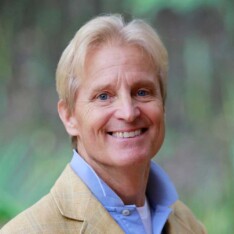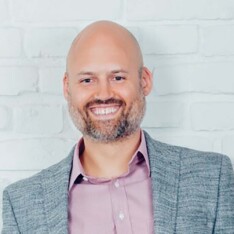


The mantra of “sustainable growth” has given way to a new narrative that points to “degrowth” as an imperative for human survival. Its proponents assert that it can save the planet, “unmake capitalism”, and even “enable societies to prosper without growth.” Perhaps driven by good intentions, proponents of “degrowth” are plotting a course that will diminish the possibilities of human flourishing in a world characterized by the conditions imposed by a scarcity of natural resources.
If we truly have empathy for the plight of humanity and the natural environment, we must unleash the creativity and innovation that has brought us to a point with the least amount of grinding poverty in history and guide us away from real or imagined catastrophes.
The assertion that pursuing anti-growth narratives is a response to “dwindling” natural resources is false and misleading, ignoring historical evidence to the contrary. What is overlooked is the existence of boundless human resources — ingenuity and the human spirit that have brought improvements in living standards to most of humanity throughout modern history.
In fact, the infinite resource of human ingenuity has pushed back boundaries that are otherwise imposed due to the amount of physical resources in the natural world. An insistence that the “dwindling” of resources requires a reduction of or a halt to growth overlooks that arguments for “peak oil” have been continuously pushed into some distant future timeframe.
Although success in the past in escaping the grips of scarcity is no guarantee of what the future will bring, it is a source of optimism in place of pessimistic predictions of the opponents of economic growth.
As it is, both approaches (“sustainable growth” and “degrowth”) involve a mischaracterization that repudiates the humane and human elements associated with capitalism and markets. Further, both narratives ascribe unwarranted humane aspects to the “state” as a mediating mechanism that would supposedly bring collective gains for humanity. This contention is brought under extreme scrutiny by an entire branch of economics, i.e., Public Choice.
It turns out that expanded and concentrated political power associated with these narratives will necessarily involve a reduction in human liberty and a diminution of human flourishing. Following the arguments mounted by Public Choice scholars, the existential threat is not from the deterioration of the physical environment or the survival of the human race, per se.
A survey of historical experience with expanded and concentrated political power reveals worse outcomes for the quality of both human and natural environments. Evidence of this claim is found in the neglect of material conditions for most of the population of the USSR and the environmental degradation in Russia and the Soviet satellite states. (See the Aral Sea disaster).
Markets Versus Politics
Unpacking the logic behind the sustainable growth and degrowth movements is an antipathy to humans using private property in an attempt to improve their conditions by interacting in markets, i.e., capitalism. In particular, the degrowth movement firmly identifies with social control or ownership of property, i.e., sharing the means, if not the ends, of socialism.
For their part, proponents of socialism tend to see private property as the PROBLEM that leads to human misery and environmental degradation. In turn, they prescribe political control over resources as a way to ameliorate these problems.
By contrast, proponents of capitalism and freedom of human action argue that private property is the SOLUTION to allow peaceful arrangements that arise from conflicts over resource use. In turn, private ownership provides incentives for conservation and husbanding of resources by their owners.
Neither approach guarantees “perfect” outcomes. However, an examination of the different incentives that guide the actors in a political or private setting is revealing in terms of which one will serve the general populace and the natural environment.
Political agents have limited information about valuing present or future values of resources or to what use will “best” serve citizens, either as consumers or producers. It is also the case that political agents tend to be deaf to or immune from errors of judgment due to weak accountability for mistakes that lead to dispersed rather than personal costs. As such, there is a weak feedback mechanism for corrections or reversals of poor policy choices.
Markets, by contrast, provide private actors with extensive and dynamic information about valuations of resources and capital as revealed by interactions and trades. It is also the case that private actors will tend to bear the direct burden of errors of judgment that provide a personal incentive to make corrections as quickly as possible.
Conditions for Human Flourishing
There are certain economic forces at work worth consideration, which we can put to work in thinking about scarce resources (supposedly “dwindling”, the degrowthers assert). The first is market prices. When a good becomes relatively more scarce today than it was yesterday (holding the demand constant), there is an upward push on its price. As with anything else bought and sold, increases in relative prices tend to lead to an increase in quantity supplied (as suppliers see a profit opportunity), often through technological innovation or as rival producers enter the market. At the same time, an increase in the relative price will tend to lead to a decrease in quantity demanded, usually through substitution. As two Soviet economists rightly noted back in the 1980s, “Everything is interconnected in the world of prices, so that the smallest change in one element is passed along the chain to millions of others.”
As for policy, governments allowing unhampered market prices provide signals about relative scarcity, and private property provides incentives. Private property, however, is only secure under the rule of law: meaning that political leaders must live with the same set of rules as the citizens they lead.
If the goal is human flourishing (and this should be front and center in our approach), then we must ask what are the conditions that allow for it. As previously stated, private property and market prices facilitate incentives and feedback. The rule of law protects a populace against predatory behavior, not only of other individuals but also of state actors. But of at least equal importance is the presence of a culture that favors peace over war, values entrepreneurship, and that sees voluntary trade as positive sum (rather than zero sum, assuming if one side wins, the other side has to lose).
Can we “run out” of natural resources? There are indeed finite resources on our planet. We can, of course, recycle used materials and (eventually) mine asteroids and even colonize other planets. But to take this a step further, Julian Simon argues that “The history of the past 200 years, in fact the whole history of humanity, has shown us the extraordinary events, contrary to all common sense, that the more that we use of natural resources, the more we have of them.” This may seem counterintuitive given the aforementioned finiteness of resources on earth, but Simon makes the case that the price to extract natural resources from the earth has gone down throughout history.
So, yes. Growth can be forever if we can stop entertaining dangerous ideas that tell us that growth is undesirable or unsustainable. The primary obstacle to continuous improvement in the human condition is human (political or ideological) interference with the liberty of others.
So what does economic growth have to do with human flourishing? Oxford economist Paul Collier probably summed it up best when he stated that “Economic growth is not a cure-all, but lack of growth is a kill-all.”





